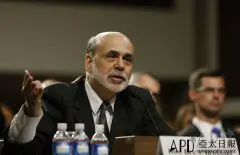Iraq's liberation of Mosul dealt a huge blow to Islamic State (IS), but the terror group will remain a threat for longer time as it is still holding its ground in Syria and could seek to launch revenge attacks, Syrian experts said.
Iraq on Sunday announced victory in its battle to liberate Mosul, the de facto capital of IS in Iraq, after a nine-month tough battle. This is regarded as a turning point in Iraq's three-year hard struggle to eradicate the terror group.
However, Syrian experts said that while IS has suffered from a major defeat in Iraq, the anti-terror war is far from over.
They said that IS is still holding its ground in Syria, where it could seek to regroup or launch attacks against Iraq. Moreover, IS could also try to perpetrate a new wave of terror attacks around the world to demonstrate its continued threat.
The experts are worried that winning the victory over IS in Syria will be more complicated. They blamed the U.S.-led Western powers for not wholeheartedly seeking to destroy IS, as they are more interested in defeating the Syrian government and Iran.
Syria could be used as a back base
Mosul's victory does have a positive impact on the Syrian war against IS, because both countries have rich resources that support the terror group, Osama Danura, a Syrian political analyst and a member of the government delegation to the Geneva talks, told Xinhua in an interview.
Danura noted that Syrian forces are now also expanding their progress in fighting IS in the eastern province of Deir al-Zour near Iraq.
But he pointed out that, without defeating IS in Syria simultaneously, the impact of the victory in Iraq could be limited as the group would launch attacks at Iraqi targets from Syria in future.
"Most certainly the Iraqi and Syrian fronts are one in the face of the Islamic State, and you cannot defeat IS in Iraq without defeating it in Syria," Danura said.
The IS is known for its ability to move quickly from one place to another "and it's possible that IS would take Syria as a back base to launch attacks on Iraq after its complete collapse in Mosul," he said.
IS could also re-emerge in other areas in both Iraq and Syria, if the void left by IS is not quickly filled by legitimate forces of both countries, he added.
Possibility of IS launching revenge attacks
Ahmad Ashqar, a Syrian political analyst, told Xinhua that as IS suffers loss on the battlefield, the terror group and its sympathizers could be compelled to launch more terror attacks in retaliation "so to send out a message that they cannot be defeated."
"With all major powers fighting it, the IS is not in its best conditions, particularly now that it's being targeted and hunted down in its strongholds of Raqqa in Syria and Mosul in Iraq," Ashqar said.
"This is why they have resorted to escalating their attacks in Europe, which I think are desperate attempts to tell the world that they are still here and capable of targeting the core of your secure countries," he added.
Even if the IS is wiped out in Syria and Iraq, its followers will continue terror activities around the world, especially in the countries supporting the U.S. in the anti-IS battles, Ashqar said.
"We could still see suicide bombings following the defeat of IS, our communities and even the West will have to wait for a relatively long time before the situation is fully contained and IS becomes history," he said.
Indeed, many experts agree that the recent spate of terror attacks that swept through European cities, including Manchester, London, Paris and Brussels, were in fact linked to the continued loss of IS territories in the Middle East.
U.S. hindering war against IS in Syria
While emphasizing the importance of winning the war against IS in Syria, Syrian experts criticized the United States for deliberately hampering the Syrian government's war against IS.
Danura said that the U.S. is trying to increase pressure on the Syrian government by playing up the issue of chemical attack again.
He was referring to the U.S. new charges that Damascus is preparing to launch a new chemical attack on rebel forces, similar to the excuse which Washington used in April to launch a cruise missile attack at Syria.
"The U.S. is also working to hinder the Syrian army progress against IS in northern Syria because the U.S. is not ready yet to let go of IS, as it considers this group as 'free servant,'" Danura said.
He believed that the U.S. doesn't really want to defeat IS in Syria, citing "the U.S.-led airstrikes are killing mostly civilians, in addition to the fact the coalition is apparently trying to open backdoors for IS to flee Raqqa toward other Syrian cities."
The anti-IS war in Syria is much more complex than Iraq, as various factions, including Syrian government forces backed by Russia and Iran, and the U.S.-backed Kurdish-led forces, are fighting IS or among themselves.
Anas Joudeh, the head of Syria's Nation Building Movement, said the U.S.-led West is not wholeheartedly fighting IS but focusing on taking over territories from the Syrian government.
"Of course, fighting terrorism will still be the declared title, but the content is far from that, it's all about controlling areas and who will control those areas in the post-IS era, and not fighting IS, " Joudeh said.
"Now there is a policy of keeping IS in certain areas until reaching understandings between the superpowers, and that will define whether this group can stay or leave," he said.
Joudeh added that for the U.S.-led Western powers, defeating IS is not the ultimate goal, as their real goal is defeating Iran, an arch rival for the U.S and Israel.
(ASIA PACIFIC DAILY)
 简体中文
简体中文

